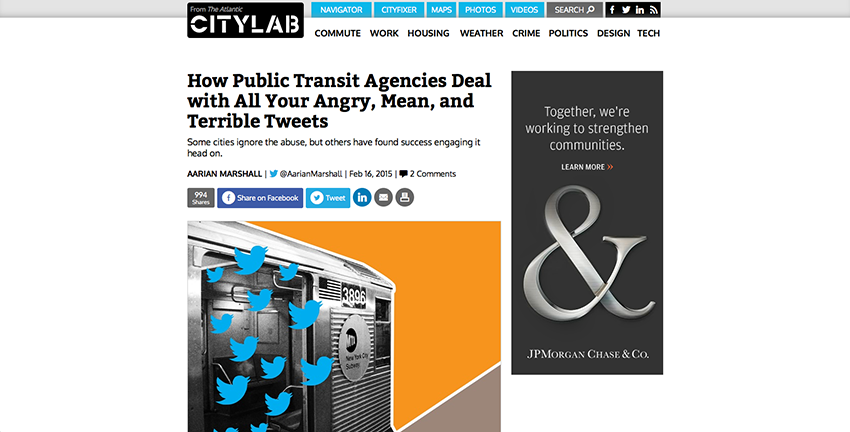


Apparently public transit agencies around the country get some pretty nasty feedback on social media, especially Twitter.
Atlantic Media’s CityLab asked transit agencies about the tweet abuse they endure and how they handle it. The site also talked to the School of Civil and Environmental Engineering’s Kari Watkins about the phenomenon.
Her advice?
Use Twitter to share service-related problems. But also use it to actively listen to and interact with customers.
“The part that scares me the most is not so much the feedback. … It’s when agencies have a Twitter handle just for service alerts,” Watkins told CityLab. “They’re only showing things that are wrong with the system. There’s no positive to balance that out.”
There’s more about the agencies’ different approaches to that in the full CityLab story.
You’re “slowly sucking our souls and our money one messed up day at a time,” they write. “Why must you be so b-----?” You’re “a disgrce.” “:/ u suck!”
Such is the abuse leveled at public transit agency Twitter accounts every day—truly and unendingly negative. “Negative” is putting it kindly. According to a new study in the Journal of the American Planning Association, public transit receives more racist, classist, sexist, and altogether discriminatory tweets than other much-maligned public and private services, including social welfare programs, the IRS, and airlines (even United!). The study, which coded two years of tweets according to their negativity, found that the poor Chicago Transit Authority got only a bit less online ire than did “Obamacare.”* Boston’s MBTA came in just above “welfare queen.”
Public transit agencies face a bit of a dilemma when it comes to social media. On one hand, they're expected to take loads of abuse sitting down. “A lot of times [Twitter users] are just upset,” says Kari Watkins, a Georgia Tech professor who has studied public transit agencies and social media. “They’re not actually looking for people to respond.”
